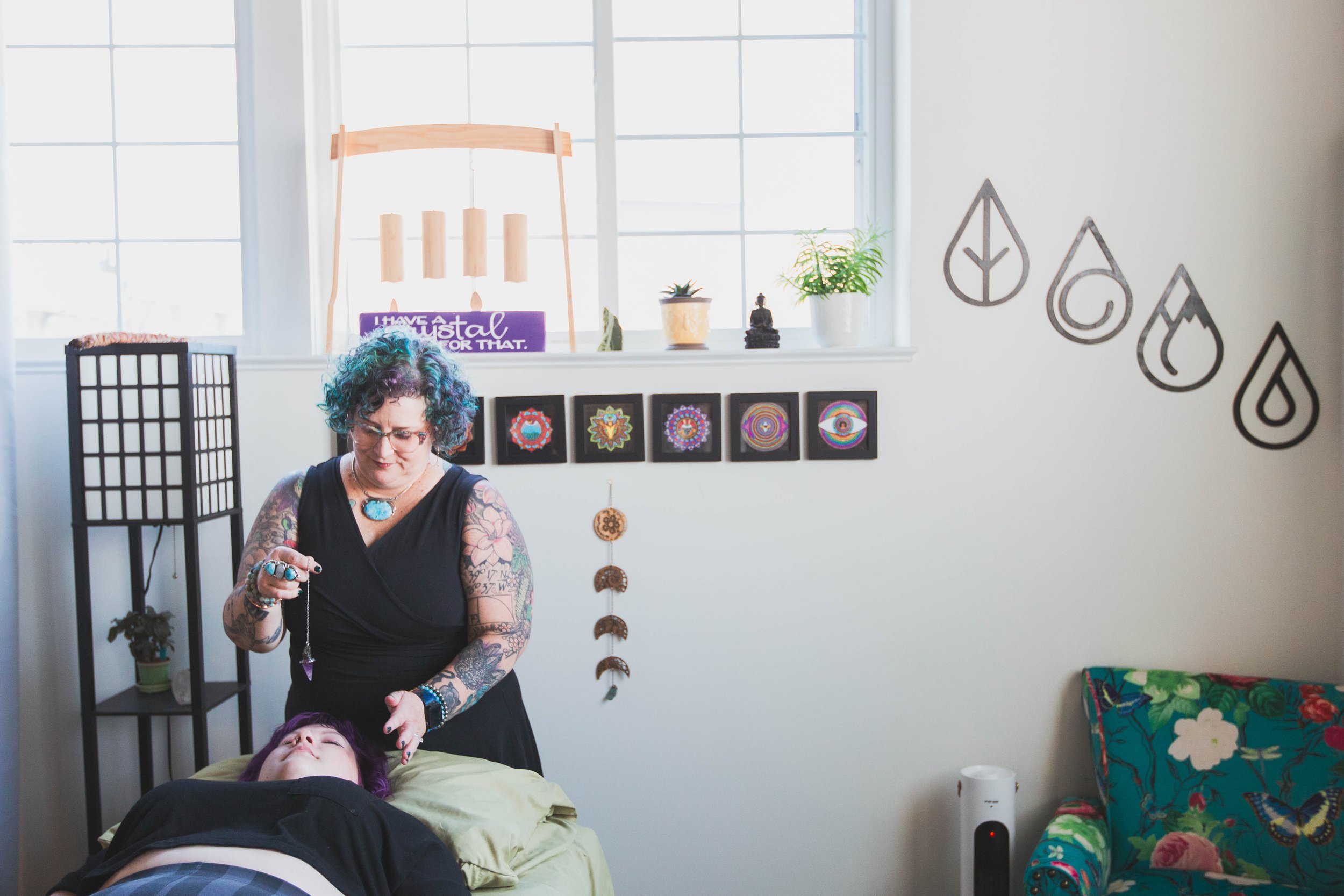Why Reiki?
photo credit: Casey Kelly
Most of my clients are a little nervous when they step into their first Reiki session. They are curious and excited but unsure of what to expect. I try to set them at ease by explaining the logistics of the session, but harder to predict are their individual experiences on the table. Everyone has a different intention for coming, and every session is different for every client. So, without a prescribed, linear process and predictable outcome, why do people choose Reiki as a way to heal themselves?
First, Reiki is one of the few healing modalities that has no negative side-effects. Reiki can do no harm, and, as a practitioner, there is no way to mess it up. My intention is always for my clients’ highest good, and that is always what they get: the healing they most need. This is an amazing attribute of Reiki because, as the healer, I do not have to know what is wrong to help it heal. However, this is also one of the reasons why there is no predictable outcome. Sometimes a client will ask for Reiki to mitigate a particular issue but will not notice a shift in that area. This does not mean that the Reiki didn’t work—it simply means that the client’s mind, body, soul, and spirit directed the energy elsewhere because that is where it was most needed. If I offer Reiki energy, healing is happening; it just may not be clear at first where the energy is working. Nonetheless, every client has come to his or her second session with a story about a difference, a shift, an improvement in some area of their body, emotions, thought patterns, or life
Second, Reiki heals on more than one level: it works physically, mentally, emotionally, and spiritually. Most simply and consistently, it aids relaxation and meditation. In addition, I have clients who have seen improvements in sleep, anxiety, depression, chronic pain, migraines, and negative side-effects of Western medicine, including antidepressants and chemotherapy drugs. Others have found support for grief, processing childhood trauma, abuse, addiction, and figuring out their path and purpose. Some have seen profound shifts with issues around self-love, self-esteem, body acceptance, and relationships. It can heal feelings of disconnectedness from others, support spiritual seeking, and connect you with guidance. Because everyone’s situation and journey are different, no two experiences on the table are the same, but healing is happening where is it most needed in every session.
photo credit: Casey Kelly
Third, Reiki works in concert with and in support of every other healing modality. It can help detoxify the body without working against medications or other medical treatments. It can support shifts you may be working toward in talk-therapy. It deepens the experience of acupuncture. It speeds healing from surgery and injury. (This has been proven in studies and has resulted in some hospitals accepting Reiki practitioners both in operating rooms and in recovery areas.) It can increase the effectiveness of body work. Whatever method the members of your healing team use, Reiki can support those techniques, helping them to work more deeply to help you heal.
If you have been considering Reiki but weren’t sure what it does or if it is worth your time and money, you are not alone. Before I became a practitioner, I was curious but unsure. After my first training, I felt such remarkable shifts that I knew Reiki would be an important part of my life. It has helped me to manage my anxiety, to heal deep wounds from my past, to grieve losses, to grow, and to learn to love myself. If you are interested in seeing how Reiki might help you, make an appointment and give it a try!


